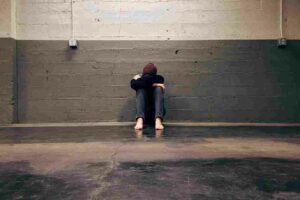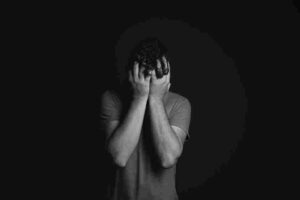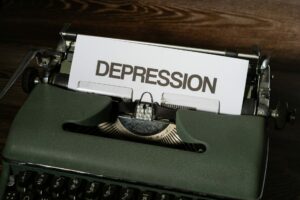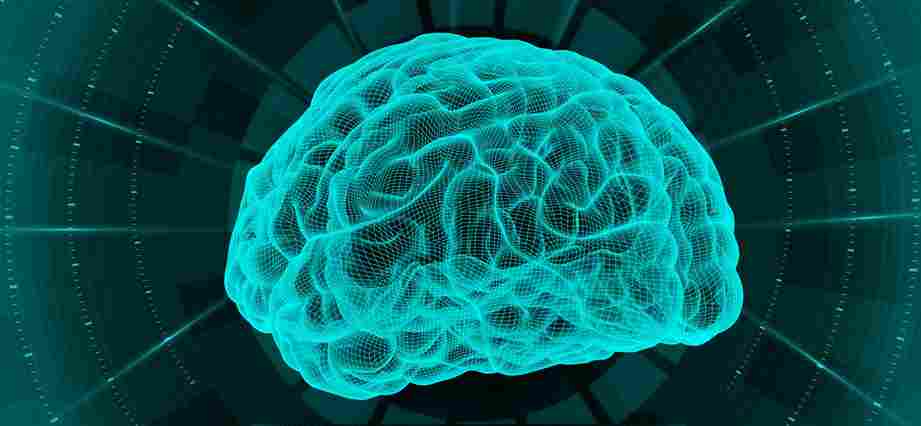Refractory depression is a form of major depressive disorder that does not respond to conventional treatments. This can be a very frustrating and isolating experience for those who suffer from it. In this blog post, we will discuss what refractory depression is, and how you can get help if you are struggling with it.
Contents
What Does Refractory Depression Mean?
 Refractory depression means that your depression has not responded to treatment. This can include both medication and therapy. If you have tried multiple different treatments and nothing has worked, you may be struggling with refractory depression.
Refractory depression means that your depression has not responded to treatment. This can include both medication and therapy. If you have tried multiple different treatments and nothing has worked, you may be struggling with refractory depression.
Treatment-resistant or refractory refers to people who do not respond to usual therapies. After two types of antipsychotic medications, there is a reduction in symptoms, which indicates that traditional forms of therapy have been ineffective. In this context, treatment-resistant depression (TRD) is a type of major depressive disorder (MDD) that does not respond to commonly used antidepressants. Treatment resistance can manifest in different ways.
What Are The Symptoms?
The symptoms of refractory depression are the same as those of major depressive disorder, but they are more severe and last longer.
They include:
- Persistent sad, anxious, or “empty” mood
- Loss of interest or pleasure in activities, including sex
- Decreased energy, fatigue, being “slowed down”
- Difficulty concentrating, remembering, and making decisions
- Insomnia or hypersomnia (sleeping too much)
- Appetite and/or weight loss or overeating and weight gain
- Thoughts of death or suicide; suicide attempts
- Restlessness or irritability
Persistent physical symptoms that do not respond to treatment, such as headaches, digestive disorders, and chronic pain.
These are some symptoms you may experience if you have refractory depression. If you think you may be suffering from this type of depression, it is important to seek professional help.
What Are The Causes ?

The causes of refractory depression are:
- Genetic factor: Various genetic factors are associated with an increased risk of developing refractory depression.
- Brain structure abnormalities: Certain structural abnormalities in the brain have been linked to refractory depression. Various neurotransmitters involved in regulating mood, and imbalances in these chemicals are thought to play a role.
- Incorrect Diagnosis: People who don’t respond to major depressive treatment might not have the condition. They could be experiencing symptoms that resemble depression but are suffering from bipolar disorder or another disease with similar symptoms.
- Stressful life events: Exposure to stressful life events is a risk factor for developing refractory depression.
- Trauma: Trauma can also lead to the development of refractory depression.
- Substance abuse: Substance abuse is another possible cause of refractory depression.
Other factors increase the risk of refractory depression. For example, biochemical factors, sleep disturbances, nutritional deficiencies. And the longer a person has had major depression, the more likely it is that they will have refractory depression. People who suffer from depression and other disorders, like anxiety, are less likely to have their depression cured by antidepressant medication.
So these are many possible reasons why someone may not respond to treatment for depression. It is important to remember that each person is unique and what works for one person may not work for another. If you are struggling with refractory depression, do not give up hope- there are other options out there for you.
Why Person Doesn’t Respond To Anti-depressants?
There are four possible scenarios in which a person may not respond to antidepressants:
1. The person has tried two different types of antidepressants from different classes without any response.
2. The person responded minimally to an antidepressant- the relief was not enough to resolve all symptoms.
3. The person responded well temporarily, but then the symptoms eventually returned.
4. Or, a person may start out responding well to antidepressant medication, but then begin experiencing worsening symptoms ( known as “treatment-emergent depression”).
There are many possible reasons why someone may not respond to treatment for depression. It is important to remember that each person is unique and what works for one person may not work for another. If you are struggling with refractory depression, do not give up hope- there are other options out there for you.
How It Is Diagnosed?
 There is no single test to diagnose refractory depression. A comprehensive evaluation includes a medical history, physical exam, psychological assessment, and laboratory tests. Your doctor will also ask about your symptoms, how long you have had them, and how they have affected your life.
There is no single test to diagnose refractory depression. A comprehensive evaluation includes a medical history, physical exam, psychological assessment, and laboratory tests. Your doctor will also ask about your symptoms, how long you have had them, and how they have affected your life.
To be diagnosed with refractory depression, you must have had at least two major depressive episodes. An episode is defined as a period of at least two weeks during which you have five or more symptoms of depression, including depressed mood or loss of interest in activities.
You may also be diagnosed with refractory depression if you have had one major depressive episode and you have not responded to at least two different treatment approaches.
Treatment-resistant depression is a diagnosis of exclusion, which means that other potential causes of your symptoms must be ruled out before a diagnosis can be made. These potential causes include medical conditions, medications, and substance abuse.
Your doctor may refer you to a mental health professional for a psychological assessment. This assessment can help to rule out other potential causes of your symptoms and confirm the diagnosis of refractory depression.
How It Is Treated?

The first step in treating refractory depression is to find a mental health professional who is experienced in treating this type of depression. Currently being treated for depression and are not getting better, it is important to discuss this with your doctor or therapist.
If medication doesn’t respond to treatment, then you can talk to a psychiatrist about other treatment options for your depression. If you have tried different types of medication and they haven’t worked, don’t give up hope. There are other ways to treat refractory depression.
Psychotherapy
Psychotherapy, also known as talk therapy, can be an effective treatment.
- Light therapy or phototherapy, involves exposure to artificial light. This type of therapy helps treat refractory depression.
- Cognitive behavioral therapy (CBT) is a type of psychotherapy that is particularly helpful in treating depression.
Medication
Several different types of medication can be used to treat refractory depression. These include antidepressants, antipsychotics, and mood stabilizers.
Augmentation: This involves adding another medication to your current treatment regimen to boost its effectiveness. They may need to adjust your medication or change your treatment plan.
Switch: This involves switching from one type of antidepressant to another. There is no one-size-fits-all approach to treating refractory depression. Treatment should be tailored to your specific.
Electroconvulsive therapy (ECT)
This is a type of treatment that involves sending electrical currents to the brain. It is typically used as a last resort for people with refractory depression who have not responded to other treatments.
Transcranial magnetic stimulation (TMS)
This is a newer type of treatment that involves using magnetic fields to stimulate the brain. It is typically less invasive than ECT and can be an effective treatment.
If you are struggling with refractory depression, there is help available. Do not hesitate to reach out to a mental health professional for assistance. You deserve to live a happy and fulfilling life, free from the chains of depression.
Conclusion
Refractory depression is a serious condition that can be difficult to treat. Sometimes doctors recommend a combination of medication and therapy to help people manage their symptoms. Psychiatrists will evaluate your medical history, current treatments, and other conditions to devise the best treatment plan for you.
While looking for the best therapy option, you must find an expert to work with. A therapist can help you understand your depression and work on coping skills. If you are struggling with this depression, know that you are not alone. You can get help from various sources online.
If you want more guidance and tips on how to treat or what to expect from therapy, be sure to contact Therapy Mantra. The team of experts here can help you every step of the way. Contact us today to learn more about our services. You can also book an online therapy session or download our free Android or iOS app


